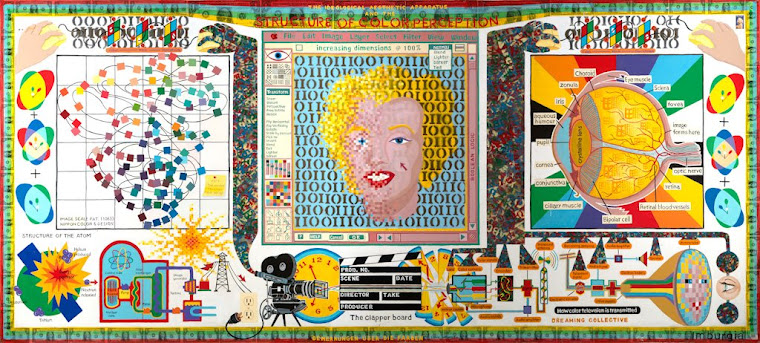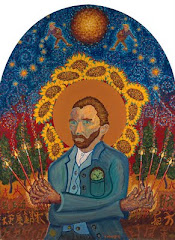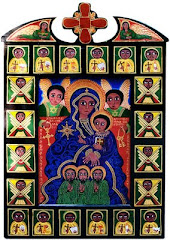Klediments:
*** “This concern for death, this awakening that keeps vigil over death, this conscience that looks death in the face is another name for freedom.” — Jacques Derrida, The Gift of Death.
*** Creeper, by John Updike
With what stoic delicacy does
Virginia creeper let go:
the feeblest tug brings down
a sheaf of leaves kite-high,
as if to say, To live is good
but not to live - to be pulled down
with scarce a ripping sound,
still flourishing, still
stretching toward the sun -
is good also,
all photosynthesis
abandoned, quite quits. Next spring
the hairy rootlets left upulled
snake out a leafy afterlife
up that same smooth-barked oak.
up that same smooth-barked oak.
*** I live on, what most folks agree, is a beautiful island. Many people move here to ‘get away form it all,’ and yet people still die here all the time. Here in Langley on the south end the dominant cultural discourses (visual, material, spiritual, political) are what are now being called “progressive.” A log skidder operator I used to work with packed up and moved to Montana because he wanted to get away from all the “queers, peaceniks, and tree huggers that have taken over the island.” We had never talked politics or religion at work but he knew that I used to be a logger too so I think he reckoned that we were culturally simpatico (how many LGBT supporting, communistic/ anarcho-roman-catholic loggers are there anyway?). Ironically, after he had moved to Montana with all his guns, pit-bulls, and confederate flags, he found out that the small town he moved next to and most of the surrounding land was pretty much bought and owned by Jane Fonda, Robert Redford, and a bunch of other Hollywood liberal folk!
To live is good
but not to live...
still flourishing
is good also
I did an electrical service call at a Buddhist hospice house here on the island. The monks and caregivers there are quite amazing and truly compassionate. In Tibet after someone dies the monks dismember the body, place the pieces away from the village, and let the vultures consume and carry it away dispersing the bodies materiality throughout the landscape. I reckon there are codes against that sort of thing here on Whidbey, plus we don’t have those kind of vultures around here to clean up the mess (although we do have lots of eagles and coyotes). I’m really a bit squeemish about this sort of thing. I think I prefer the funeral practices of the Coast Salish Native peoples who used to visit and live in this region. They would place their dead inside of artistically painted canoes and then lodge them high up into the trees.
To live is good
but not to live
still flourishing -
is good also
Of course, sometimes people fall into such deep comas that they can appear to be dead. There are a quite a few Catholic saints (and near saints) that have experienced this phenomenon. My favorite is *Saint Christina the Astonishing.* She was a peasant-born orphan raised by sisters around 1050. When she was 21 she had a seizure that left her cataleptic and everyone thought that she had died. During her funeral mass she astonished everyone by sitting bolt upright in her coffin and then levitating up to the roof of the church. The startled priest commanded her to come down and she floated down to the altar and began witnessing to the congregation about her experience of visiting hell, purgatory, and heaven. She went on to spend much of her life talking with birds and praying to The Virgin Mary high up in the treetops. But she would also torment herself by doing things like rolling around in fires and then screaming in agony even though the flames left her body uninjured. Throughout her life she was homeless, dressed in rags, and would cavort wildly in the street, swim in frozen rivers, hurl herself in front of wagons, etc. and in general terrify everyone she encountered (btw, she is the patron saint of “lunatics”). That sort of thing doesn’t seem to happen much any more, and even if it did one can imagine the kind of controversy it would cause. The Tibetan Buddhists have a similar kind of category of holy people that they also call saints, but their funeral practices make it unlikely that they have anyone to match Saint Christine.
To live is good
but not to live
still flourishing -
is good also
"As I lay dying, the woman with the dog's eyes would not close my eyes as I descended into Hades" (Agamemnon to Odysseus in Book IX in Homer’s Odyssey). Faulkner used this phrase for the title of what is perhaps his best novel, “As I Lay Dying.” I just learned that it has recently been made into a movie. I haven’t watched it yet but I am looking fwd to seeing how they structure a movie from this kind of ‘stream of consciousness‘ writing with more than a dozen different narrators. Here is one of my favorite sections from the book and I am already visualizing, making icons in my mind so to speak, of how this scene might be pictured cinematically. Here is the deceased Aidee speaking from inside her coffin:
“I knew that living was terrible and that this was the answer to it. That was when I learned that words are not good; that words don’t ever fit even what they are trying to say at. When he was born I knew that motherhood was invented by someone who had to have a word for it because the ones that had the children didn’t care whether there was a word for it or not. I knew that fear was invented by someone that had never had the fear; pride, who never had the pride. I knew that it had been, not that they had dirty noses, but that we had had to use one another by words like spiders dangling by their mouths from a beam, swinging and twisting and never touching, and that only through the blows of the switch could my blood and their blood flow as one stream....
He had a word, too. Love, he called it. But I had been used to words for a long time. I knew that that word was like the others: just a shape to fill a lack; that when the right time came, you wouldn’t need a word for that anymore than for pride or fear. One day I was talking to Cora. She prayed for me because she believed I was blind to sin, wanting me to kneel and pray too, because people to whom sin is just a matter of words, to them salvation is just words too.”
To live is good
but not to live
still flourishing -
is good also
We still need those words for love though (and words for fear, sin, joy, and salvation--even spiders and buzzards have a crucial role in creation’s economy). But because they are always signing a “lack,” words will never fill the voids between signatures and hand-shakes, Idols and gods, being and becoming, the living and the dead. After Aidee Bundren dies and is nailed into her coffin, it seems that her son Vardaman cannot accept the finality and truth of those nails, of his mother’s death, so he drills breathing holes through the lid of the coffin (and inadvertently through his mother’s head!). I wonder if this is what much of Faulkner’s writing about language in *As I Lay Dying* is about; that using language can be like the futile gesture of drilling holes through what we perceive are the barriers, the many veils between flourishing life or life pulled down, ripped out, and abandoned, between our worlds and whatever other worlds might exist? “I live my death in writing,” Derrida says in his last interview (*Learning To Live Finally: The Last Interview*), perhaps Faulkner would agree? But those holes in Aidee’s coffin let out into the world a terrible stench of decay and death as her coffin is trundled from town to town, and the vultures picking up the scent, circle and follow the corpse.
To live is good
but not to live
still flourishing -
is good also
But could we also interpret making those holes in Aidee’s coffin as a sign of hope? Why not understand Vardaman’s motive as providing a way for her spirit to escape the confining structures imposed on bodies in both life and death, as offering Aidee’s spirit a way to continue her journey back to her creator? Coast Salish canoe coffins wisely had no top covering. Their bodies are ‘buried’ in the sky, so to speak, and at the resurrection, all those Natives in their brightly colored canoes, along with all the Tibetans briefly entombed in the gullets of birds, and Saint Christine the astonished too, will all surely be just that much closer to any manner of heaven!
*** Here is a poem of mine I found in one of my old chapbooks:
Graduate School
After reading my chapbook of 25 poems
One of the first things they asked me to explain
Was my “theory of poetics”
In literary departments theory is a license
Permitting one to expend gross amounts of wordage
Via Institutionally approved avant-garde mediums
If your theory is compelling enough
Oblique enough
Then the actual poems hardly matter
Or the poet too as it turns out
I wrote a lot of poetry about searching for truth
About angels, hell, signifying stars, gods and devils
Theodicy, tzimtzum, and cataphaticism
They referred me to their school of theology
Theology was a career choice
Slightly more profitable than poetry
But you had to defend your dissertation
In German rather than French or Italian
But god’s tongue kept sticking in Goethe’s craw
Everything with them was words and more words
Learning the grammar of divinity
Who would have supposed that studying God
Required as much attention to punctuation
As it did to puncturation
After 2 semesters I still could not
Conjugate Greek verbs
“But neither could Van Gogh,” I pleaded
They directed me to the art department
An MFA in fine arts seemed sensical
More in sync with my passions and illusions
But the advisor barely looked up from my transcript
The room was institutional gray
I don’t recall the color of the walls
The advisor searched the records for my “studio time”
25 credit hours of studio class time was required
Mandatory time as it turns out
They never even looked at a single image of mine
I wanted to study under dynamic cubist Jacob Lawrence
They wanted me to render still-lifes into xeroxs
I wanted to throw color around the room like a lunatic
Picture the face of God or the
Negative space of the absence of face
They wanted people faced like themselves
I wanted to drink whiskey paint the unimaginable and die poor
They wanted students with potential for success
I wanted to be an artist that could make people weep
They wanted artists who could make people pay
To be accepted into the creative writing program
I had to submit a sample story
So I wrote a tale about Virgil
A lowly worker in a city dog pound
His job was “putting down” all of the surplus animals
The un-cute, the un-petable, the un-adorable
Virgil was a type of saint really
Who’s soul was tormented by all the killing
One night he sets free all of the condemned dogs and cats
His actions are discovered and
The authorities seek to arrest him
The police hound him through the streets of the city
He and one scarred up old pit-bull
Are eventually cornered inside a mall where Virgil
“Snaps” and goes on a killing spree in the
Fur department at Nordstroms
I wrote in the mixed styles of Gertrude Stein and
Jean Cocteau’s Les Enfant’s Terribles
Creating small alternating scenes with repetitive lines
Staggering symbolism with imagism
It was all very non-linear, un-accessible, and post-modern
I even glued fake rabbit fur on the outside of the folder
(Actually, it was “real” rabbit fur, just not real “fur” fur
Which was part of the point I was trying to make
Anyway, if not for that one brief dalliance with veganism
I might be a successful writer today!)
But after reading my short story about Virgil
And following a thorough review of my complete academic file
All of the university departments agreed
I was more suited to working with my hands
Than with my mind
Came next monday morning I just showed up at the shop
With my saws and corks that I had wisely hung on to
Mondays are good days for getting timber falling jobs
Lots of guys party all weekend then miss the 4:15 alarm
The straw boss took a minute to look me over
Then told me to jump in the crummy
By 6:30 a.m. I was falling an 80 acre strip West of Chinook Pass
The next faller was almost a mile away
So the woods were safe and peaceful, considering
That I was actually cutting down the forest
But now I had time to ponder things like--
Is there is a hierarchy of life forms in what we call nature
Is beauty a categorical imperative
Do trees feel pain or have souls
As I refueled and sharpened the teeth on my saw
I could pause and compose arrangements of
Mountains, deer, sky, sun, and shadows
Reflections in an alpine lake
Contemplate what a new heaven and earth might look like
Think up words that rhyme with Husqvarna
And pray in my own tongue
Much Obliged.
(p.s. at the top is my most recent Icon of the Virgin Mary. Hopefully I will be showing it soon at an art display at the Seattle graduate school of theology next week. I really wasn’t planning on having any more art shows, but I am looking fwd to showing in this particular venue. I will try to post more info about location and times etc. next week. Again, obliged).















